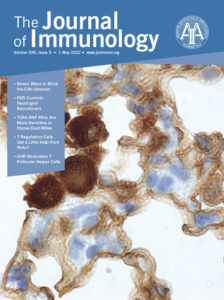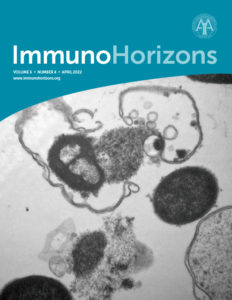Sunday, May 8, 2022 8:00 AM – 10:00 AM ET Room B117–119
Molecular Mechanisms of Inflammation
Chairs
- Kristin Patrick, Texas A&M Univ., Col. of Med.
- Brooke Napier, Portland State Univ.
Speakers
- Haley M. Scott, Texas A&M Hlth. Sci. Ctr., Serine Arginine Splicing Factor 7 (SRSF7) is a critical regulator of innate immune activation in macrophages
- Stephanie R. Shames, Kansas State Univ., Effector-mediated subversion of proteasome activator (PA)28αβ enhances lysosomal pathogen targeting within cytokine-activated macrophages
- James Robert Fisher, Univ. of Texas Med. Br. at Galveston, Mincle and TNF signaling crosstalk enhances type 1 and innate immune responses to Orientia tsutsugamushi
- Antonio J. Pagán, Univ. of Cambridge, mTOR-associated mitochondrial energy metabolism limits mycobacterium ESX-1-induced cytotoxicity
- Amy Lorraine Seufert, Portland State Univ., Palmitic acid reprograms inflammatory responses to microbial ligands in macrophages, and mediates innate immune memory in vivo
- Haleigh Gilliland, Michigan State Univ., Defining complex mechanistic interactions and responses by macrophages during Mycobacterium abscessus infection
- Cheyenne Palm, Towson Univ., NADase activity found in bacterial TIR proteins may aid in innate immune evasion
- Michal Caspi Tal, Stanford Univ. Sch. of Med., P66 is a bacterial “don’t eat me signal” that mimics mammalian CD47 and facilitates immune evasion by Borrelia burgdorferi



